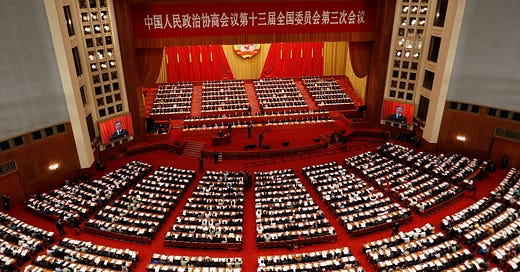China’s Whole Process People’s Democracy
The need for self-criticism in the anti-imperialist movement
Keith Bennett, co-editor of Friends of Socialist China, presented his paper, “Whole Process People’s Democracy is a significant contribution to Human Rights,” at the 2023 China-Europe Seminar on Human Rights, which has been published on the website of the Friends of Socialist China. The seminar, held in Rome, Italy, on September 20, 2023, was organized by the Human Rights Institute of the South West University of Political Science and Law in Chongqing, China, and the Roma 9 China-Italy Economic and Cultural Exchange Centre. According to the Friends of Socialist China website, the seminar was attended by distinguished academics and prominent political and social activists from China, Italy, Austria, Britain, Bulgaria, Czech Republic, Germany, Greece, Netherlands, Norway, Poland, Portugal, Serbia, Spain and Switzerland.
Bennett prefaces the article with the central and valid observation that mutual understanding is important. The current situation of world conflict requires …


